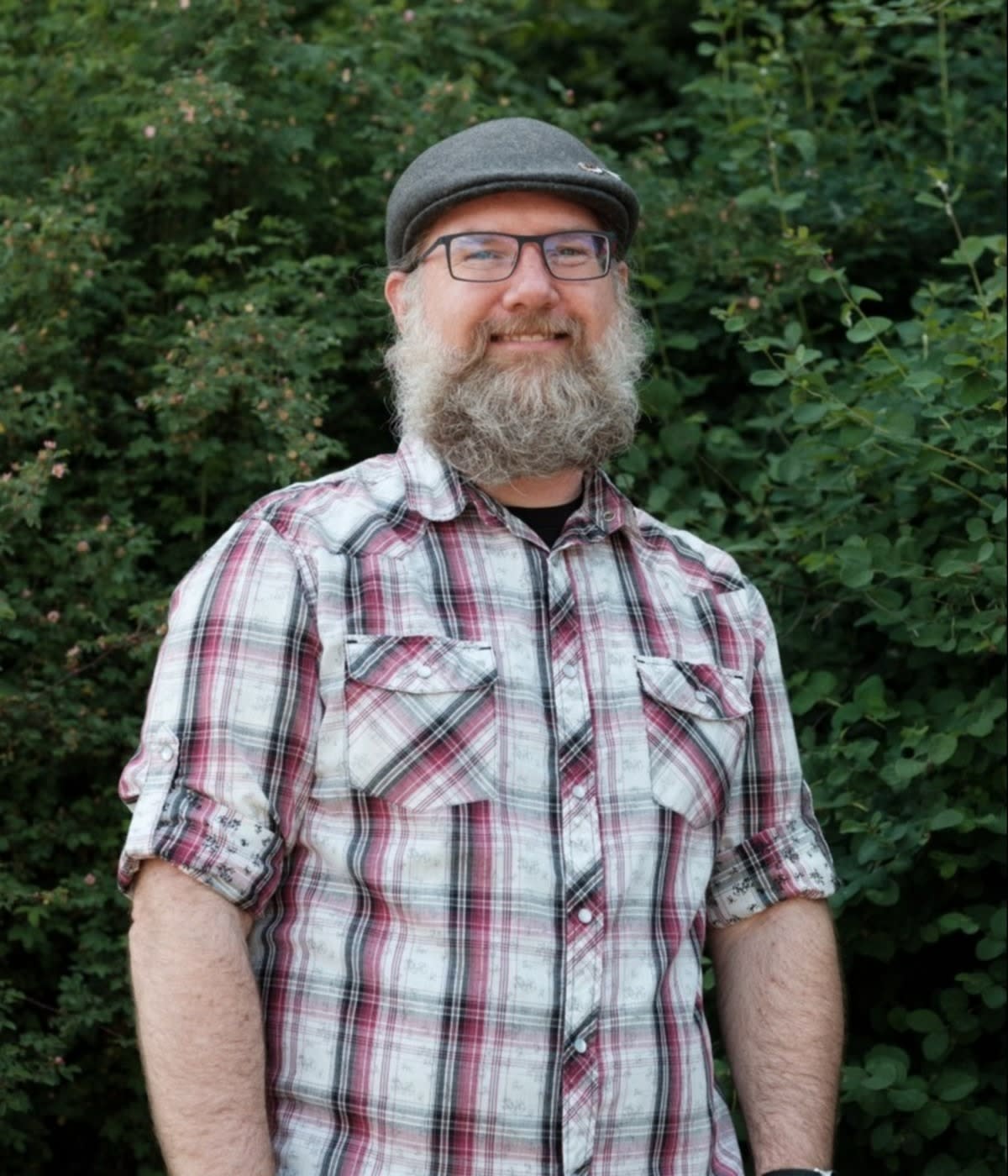In the mid 1980s, my family was one of the first in Southwest Louisiana to own a PC. My siblings and I were encouraged to play games in MS-DOS because knowing how to play games could help us learn how to navigate an operating system and ultimately lead to greater job opportunities. The encouragement totally worked and all the kids who played DOS games ended up working in IT.
Several years later when I was 19, I ended up moving to California because I wanted to learn C++ and Java. I tried to learn modern programming in Louisiana but my local college was still teaching Fortran and COBOL. When I asked about a more modern curriculum, the faculty insisted that C++ wasn’t needed. They explained that after graduation, I’d be highly employable because this one petroleum company in the area recruited Fortran developers. “Wait, what?” I thought. “No. I want more than one option for an employer.” So I moved to the more technically-progressive California where I immediately got a job in tech support and went to schools that taught newer languages.
Fast forward about 20 years to present day and I have a master’s degree, but still don’t know C++ or Java. I do, however, know PowerShell, which I use extensively at my job as an Information Security Officer that specializes in automation. PowerShell not only helped me stand out at work, it also helped me become a maintainer of dbatools, a successful open source project. Which is great, because open source is all part of the dream of sharing code and connecting with the community that comes with it.
Getting into the flow of programming is such a joyful, frantic, satisfying place to be. It helps me feel connected to the world. I live in a country where I don’t speak the language and it can feel a bit isolating to not be able to communicate with the locals. But with dbatools, open source, GitHub, and Slack, I’ve been able to build this online community where I don’t feel so lonely.
Finding her trendsetter and tapping a community of experts
One of the biggest pains in the SQL Server world used to be migrations. You needed to migrate everything from one server to another, and there were just so many moving parts, from logins to databases to associated jobs and a hundred more things.
In 2014, I was given one of these migration projects. Once I got into it, I thought to myself, “There’s no way I’m going to right-click my way through this one migration. What if, instead, I spend my time automating it, and make PowerShell do all the clicking for me? Then I’d never have to dread another migration again.”
I realized there was a whole ecosystem within SQL Server that PowerShell could automate. So I created the first 20 or so commands, and dbatools really started to take off. Then I went to the TUGA IT conference in Portugal to give a presentation about it. There were technical issues, as always, but the presentation was super well received.
I don’t know if you’ve ever seen that video where it’s the second person that really gets the ball rolling. You can have one person dancing, and they can dance and dance without ever starting a trend. But that second person: They’re the trendsetter. My second person was Cláudio Silva, whom I met at TUGA. He had a command that expanded the transaction logs in a responsible way, and asked if he could contribute that to dbatools. I gladly accepted because that’s exactly what I wanted. I wanted this to be a tool set for the whole community.
While I’ve written a majority of the code base, there are so many areas of expertise to cover that a single person would never be able to specialize in and write the code for all of them. What makes our GitHub community so powerful is that we have all these people specializing in different things and contributing to open source, and it makes our solutions even better and more complete.

Building a welcoming, accommodating, and exciting community
Back when I started dbatools, many people in the SQL Server world were resistant to PowerShell and they weren’t afraid to be vocal about it. But I knew that with the right set of commands, PowerShell would greatly enhance our lives, so I aimed to make it more approachable for the SQL Server community. With the help of other PowerShell advocates in the SQL Server world, I succeeded: dbatools now has over a million downloads and the dbatools GitHub repository has nearly 200 contributors! Considering what we do is incredibly niche, this high number of contributors floors me.
It’s been important for us to be available and welcoming, so we started a SQL Community in Slack where everyone could talk about dbatools and how we can work together. It’s an extremely friendly place that’s open to anyone in the community. We also created a GitHub organization called the SQL Collaborative where we invite other developers to create their projects and hopefully gain more attention and contributors.
Ultimately I’m very proud to say that we really got the SQL Server community onto open source and GitHub. And what’s even more incredible is that there’s an entire Slack channel where developers will walk anybody through their first pull request—they’ll hold their hand for hours explaining the git command line tools and branching. For those who like GUIs, we also show them where to download GitHub Desktop, which I think really helps more people get involved in GitHub. I’m really thankful to the entire community for doing that. I appreciate that we all came together and built a friendly community that became the catalyst for getting more people into open source. Now, so many people in the SQL Server community are doing their own open source projects.

Embracing connection and getting closer to monetization
Overall, coding is really relaxing for me. When I’m grumpy, my wife tells me, “You need to go to your office and code” because it’s so calming for me. Before the pandemic, I’d even travel to other countries just to hang out and write some PowerShell.
It’s especially cool to know that something I created has become part of the workflow for organizations across the world—even famous ones that I grew up with. When others find out that other companies use dbatools, they sometimes ask how I plan to make money, since dbatools is free. Initially, I was like, “I won’t because it’s a headache.” But GitHub Sponsors has changed that by making monetization far more approachable.
What’s cool, too, is that before GitHub Sponsors, developers might have felt like they were selling out by accepting money. But now, sponsoring developers is part of the open source ecosystem and we can monetize without the stigma.
GitHub Sponsors works, too! Many of us on the dbatools project are sponsored by members of the community and even by community organizations. Back in April, the DevOps Collective gave the dbatools team a “git grant” through GitHub Sponsors. The git grant was 10,000 massive dollars and the cherry on top was that GitHub matched one-to-one!
Beyond sponsorships, I’d like to create an Enterprise License Agreement for companies who wish for full-time support, sort of like Red Hat. Being a full-time maintainer is the dream.

A big day to report back to younger Chrissy
I grew up in a small disadvantaged town that didn’t have a lot of tech—but we had tech books. After a few Wrox books helped me get a better job, I decided that I wanted to be a tech book author so I could help others, too. I had originally planned on writing a book about someone else’s technology, like SQL Server or Classic ASP, but as I was building dbatools and all these people were coming together, I wondered if anyone would want to collaborate on a book about software that we wrote.
After a few fellow developers said yes, I explored the idea, but it never felt right until someone suggested that we do it as part of Manning Publications’ “Month of Lunches” series. Within the PowerShell community, we all recommend and love PowerShell in a Month of Lunches, so I wrote a proposal for Learn dbatools in a Month of Lunches. I sent it to Manning with a note that explained how much I loved the series and Bruce Payette’s Windows PowerShell in Action, and told them that I wanted to write for them.
Incredibly, Manning came back and said “We love your proposal and we’d like to offer you a contract.” I was just stunned. I get to be a tech author AND write about something I created!? I reached out to fellow dbatools developer Rob Sewell and he agreed to be my co-author, while Cláudio Silva agreed to be the Technical Editor. Incredible!
My proposal to Manning was accepted on the same day that I graduated with my master’s in systems engineering. It was an especially huge day because I’m Cajun and we don’t often go to college. And I know even fewer of us that write books.
I measure success by imagining how pumped younger me would be if I told her about my current life. And I feel super fortunate to say that younger me couldn’t be happier! I really want to report back and tell her: “YOU WROTE A BOOK THAT PEOPLE READ AND LOVE!!!”
A symbiotic community that fuels innovation and collaboration
dbatools has over 550 commands, and I generally have a good idea of what they all are. So if somebody’s like, “Oh, I need to decrypt some objects,” I can come back with a list of dbatools commands that Sander Stad created and people are so impressed. They’re like, “What doesn’t dbatools do?!” It’s such a good feeling when others share that kind of excitement.
To be able to give back and provide support for others is part of the open source package for me. Somebody once said to me, “Chrissy, your tool alone helps prompt people into getting onto GitHub way better than sitting in a class and walking them through it.” And that’s just so exciting that I created something that people are pumped about. It’s this holistic package that’s extraordinarily fulfilling because it’s work, it’s play, it’s friendship, and it’s dreams coming true. There’s so much excitement and a ton of dopamine hits every time.




